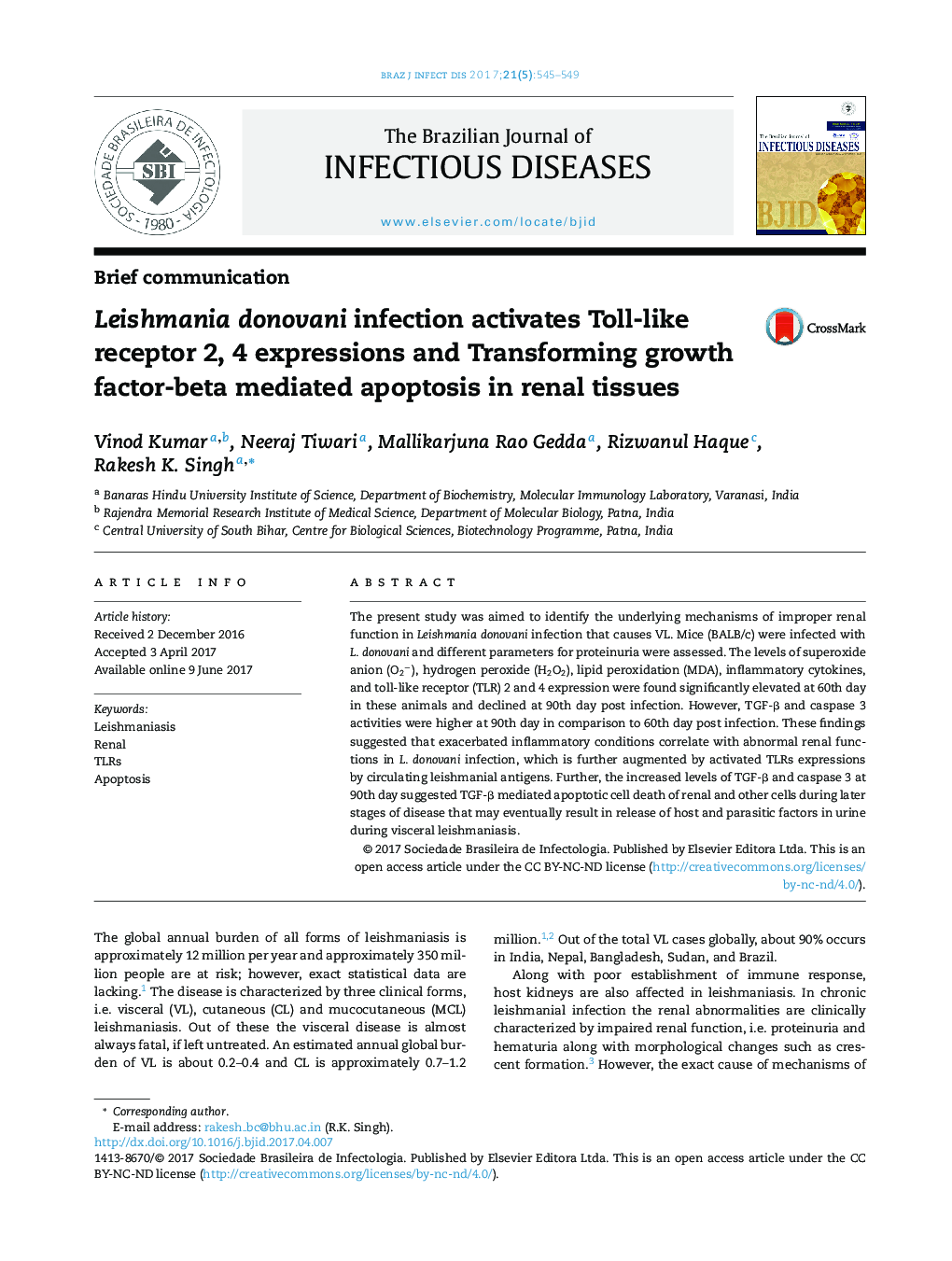| Article ID | Journal | Published Year | Pages | File Type |
|---|---|---|---|---|
| 5665598 | The Brazilian Journal of Infectious Diseases | 2017 | 5 Pages |
The present study was aimed to identify the underlying mechanisms of improper renal function in Leishmania donovani infection that causes VL. Mice (BALB/c) were infected with L. donovani and different parameters for proteinuria were assessed. The levels of superoxide anion (O2â), hydrogen peroxide (H2O2), lipid peroxidation (MDA), inflammatory cytokines, and toll-like receptor (TLR) 2 and 4 expression were found significantly elevated at 60th day in these animals and declined at 90th day post infection. However, TGF-β and caspase 3 activities were higher at 90th day in comparison to 60th day post infection. These findings suggested that exacerbated inflammatory conditions correlate with abnormal renal functions in L. donovani infection, which is further augmented by activated TLRs expressions by circulating leishmanial antigens. Further, the increased levels of TGF-β and caspase 3 at 90th day suggested TGF-β mediated apoptotic cell death of renal and other cells during later stages of disease that may eventually result in release of host and parasitic factors in urine during visceral leishmaniasis.
